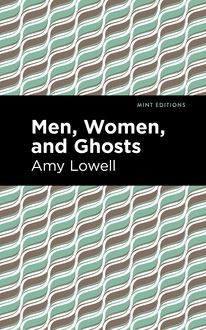-
 Univers
Univers
-
 Ebooks
Ebooks
-
 Livres audio
Livres audio
-
 Presse
Presse
-
 Podcasts
Podcasts
-
 BD
BD
-
 Documents
Documents
-
- Cours
- Révisions
- Ressources pédagogiques
- Sciences de l’éducation
- Manuels scolaires
- Langues
- Travaux de classe
- Annales de BEP
- Etudes supérieures
- Maternelle et primaire
- Fiches de lecture
- Orientation scolaire
- Méthodologie
- Corrigés de devoir
- Annales d’examens et concours
- Annales du bac
- Annales du brevet
- Rapports de stage
La lecture à portée de main
Vous pourrez modifier la taille du texte de cet ouvrage
Découvre YouScribe en t'inscrivant gratuitement
Je m'inscrisDécouvre YouScribe en t'inscrivant gratuitement
Je m'inscrisEn savoir plus
Vous pourrez modifier la taille du texte de cet ouvrage
En savoir plus

Description
Sword Blades and Poppy Seed (1914) is a poetry collection by Amy Lowell. Published at the beginning of her career as an influential imagist devoted to classical poetic themes and forms, Sword Blades and Poppy Seed is an agile and promising work from a pioneering poet of the early twentieth century. The title poem of Lowell’s collection is an imaginative voyage into the mind of a poet struggling with writer’s block, who scans the city for “the slightest tinge of gold” to no avail: “From time to time I wrote a word / Which lines and circles overscored. / My table seemed a graveyard, full / Of coffins waiting burial.” Disgusted with her inability to write anything meaningful, she takes the streets, encountering a strange old man—part poppy dealer, part devil—who offers success in exchange for the poet’s soul. Personal and public, keenly engaged with tradition—the Faustian legend, in particular—while maintaining her own private voice, Lowell’s poems are an essential contribution to one of humanity’s oldest art forms. Sword Blades and Poppy Seed is a vibrant collection from an emerging poet who would come to define the imagist movement throughout her storied career. With a beautifully designed cover and professionally typeset manuscript, this edition Amy Lowell’s Sword Blades and Poppy Seed is a classic work of American poetry reimagined for modern readers.
Sujets
Informations
| Publié par | Mint Editions |
| Date de parution | 03 août 2021 |
| Nombre de lectures | 0 |
| EAN13 | 9781513297361 |
| Langue | English |
| Poids de l'ouvrage | 1 Mo |
Informations légales : prix de location à la page 0,0450€. Cette information est donnée uniquement à titre indicatif conformément à la législation en vigueur.
Extrait
Sword Blades and Poppy Seed
Amy Lowell
Sword Blades and Poppy Seed was first published in 1914.
This edition published by Mint Editions 2021.
ISBN 9781513295862 | E-ISBN 9781513297361
Published by Mint Editions®
minteditionbooks.com
Publishing Director: Jennifer Newens
Design & Production: Rachel Lopez Metzger
Project Manager: Micaela Clark
Typesetting: Westchester Publishing Services
C ONTENTS P REFACE S WORD B LADES AND P OPPY S EED S WORD B LADES T HE C APTURED G ODDESS T HE P RECINCT. R OCHESTER T HE C YCLISTS S UNSHINE THROUGH A C OBWEBBED W INDOW A L ONDON T HOROUGHFARE. 2 A.M. A STIGMATISM T HE C OAL P ICKER S TORM- R ACKED C ONVALESCENCE P ATIENCE A POLOGY A P ETITION A B LOCKHEAD S TUPIDITY I RONY H APPINESS T HE L AST Q UARTER OF THE M OON A T ALE OF S TARVATION T HE F OREIGNER A BSENCE A G IFT T HE B UNGLER F OOL’S M ONEY B AGS M ISCAST I M ISCAST II A NTICIPATION V INTAGE T HE T REE OF S CARLET B ERRIES O BLIGATION T HE T AXI T HE G IVER OF S TARS T HE T EMPLE E PITAPH OF A Y OUNG P OET W HO D IED B EFORE H AVING A CHIEVED S UCCESS I N A NSWER TO A R EQUEST P OPPY S EED T HE G REAT A DVENTURE OF M AX B REUCK S ANCTA M ARIA, S UCCURRE M ISERIS A FTER H EARING A W ALTZ BY B ARTÓK C LEAR, WITH L IGHT, V ARIABLE W INDS T HE B ASKET I N A C ASTLE T HE B OOK OF H OURS OF S ISTER C LOTILDE T HE E XETER R OAD T HE S HADOW T HE F ORSAKEN L ATE S EPTEMBER T HE P IKE T HE B LUE S CARF W HITE AND G REEN A UBADE M USIC A L ADY I N A G ARDEN A T ULIP G ARDEN
P REFACE
No one expects a man to make a chair without first learning how, but there is a popular impression that the poet is born, not made, and that his verses burst from his overflowing heart of themselves. As a matter of fact, the poet must learn his trade in the same manner, and with the same painstaking care, as the cabinet-maker. His heart may overflow with high thoughts and sparkling fancies, but if he cannot convey them to his reader by means of the written word he has no claim to be considered a poet. A workman may be pardoned, therefore, for spending a few moments to explain and describe the technique of his trade. A work of beauty which cannot stand an intimate examination is a poor and jerry-built thing.
In the first place, I wish to state my firm belief that poetry should not try to teach, that it should exist simply because it is a created beauty, even if sometimes the beauty of a gothic grotesque. We do not ask the trees to teach us moral lessons, and only the Salvation Army feels it necessary to pin texts upon them. We know that these texts are ridiculous, but many of us do not yet see that to write an obvious moral all over a work of art, picture, statue, or poem, is not only ridiculous, but timid and vulgar. We distrust a beauty we only half understand, and rush in with our impertinent suggestions. How far we are from “admitting the Universe”! The Universe, which flings down its continents and seas, and leaves them without comment. Art is as much a function of the Universe as an Equinoctial gale, or the Law of Gravitation; and we insist upon considering it merely a little scroll-work, of no great importance unless it be studded with nails from which pretty and uplifting sentiments may be hung!
For the purely technical side I must state my immense debt to the French, and perhaps above all to the, so-called, Parnassian School, although some of the writers who have influenced me most do not belong to it. High-minded and untiring workmen, they have spared no pains to produce a poetry finer than that of any other country in our time. Poetry so full of beauty and feeling, that the study of it is at once an inspiration and a despair to the artist. The Anglo-Saxon of our day has a tendency to think that a fine idea excuses slovenly workmanship. These clear-eyed Frenchmen are a reproof to our self-satisfied laziness. Before the works of Parnassians like Leconte de Lisle, and Jos é -Maria de Heredia, or those of Henri de R é gnier, Albert Samain, Francis Jammes, Remy de Gourmont, and Paul Fort, of the more modern school, we stand rebuked. Indeed—“They order this matter better in France.”
It is because in France, today, poetry is so living and vigorous a thing, that so many metrical experiments come from there. Only a vigorous tree has the vitality to put forth new branches. The poet with originality and power is always seeking to give his readers the same poignant feeling which he has himself. To do this he must constantly find new and striking images, delightful and unexpected forms. Take the word “daybreak,” for instance. What a remarkable picture it must once have conjured up! The great, round sun, like the yolk of some mighty egg, B REAKING through cracked and splintered clouds. But we have said “daybreak” so often that we do not see the picture any more, it has become only another word for dawn. The poet must be constantly seeking new pictures to make his readers feel the vitality of his thought.
Many of the poems in this volume are written in what the French call “Vers Libre,” a nomenclature more suited to French use and to French versification than to ours. I prefer to call them poems in “unrhymed cadence,” for that conveys their exact meaning to an English ear. They are built upon “organic rhythm,” or the rhythm of the speaking voice with its necessity for breathing, rather than upon a strict metrical system. They differ from ordinary prose rhythms by being more curved, and containing more stress. The stress, and exceedingly marked curve, of any regular metre is easily perceived. These poems, built upon cadence, are more subtle, but the laws they follow are not less fixed. Merely chopping prose lines into lengths does not produce cadence, it is constructed upon mathematical and absolute laws of balance and time. In the preface to his “Poems,” Henley speaks of “those unrhyming rhythms in which I had tried to quintessentialize, as (I believe) one scarce can do in rhyme.” The desire to “quintessentialize,” to head-up an emotion until it burns white-hot, seems to be an integral part of the modern temper, and certainly “unrhymed cadence” is unique in its power of expressing this.
Three of these poems are written in a form which, so far as I know, has never before been attempted in English. M. Paul Fort is its inventor, and the results it has yielded to him are most beautiful and satisfactory. Perhaps it is more suited to the French language than to English. But I found it the only medium in which these particular poems could be written. It is a fluid and changing form, now prose, now verse, and permitting a great variety of treatment.
But the reader will see that I have not entirely abandoned the more classic English metres. I cannot see why, because certain manners suit certain emotions and subjects, it should be considered imperative for an author to employ no others. Schools are for those who can confine themselves within them. Perhaps it is a weakness in me that I cannot.
In conclusion, I would say that these remarks are in answer to many questions asked me by people who have happened to read some of these poems in periodicals. They are not for the purpose of forestalling criticism, nor of courting it; and they deal, as I said in the beginning, solely with the question of technique. For the more important part of the book, the poems must speak for themselves.
Amy Lowell
May 19, 1914
SWORD BLADES AND POPPY SEED
A drifting, April, twilight sky,
A wind which blew the puddles dry,
And slapped the river into waves
That ran and hid among the staves
Of an old wharf. A watery light
Touched bleak the granite bridge, and white
Without the slightest tinge of gold,
The city shivered in the cold.
All day my thoughts had lain as dead,
Unborn and bursting in my head.
From time to time I wrote a word
Which lines and circles overscored.
My table seemed a graveyard, full
Of coffins waiting burial.
I seized these vile abortions, tore
Them into jagged bits, and swore
To be the dupe of hope no more.
Into the evening straight I went,
Starved of a day’s accomplishment.
Unnoticing, I wandered where
The city gave a space for air,
And on the bridge’s parapet
I leant, while pallidly there set
A dim, discouraged, worn-out sun.
Behind me, where the tramways run,
Blossomed bright lights, I turned to leave,
When someone plucked me by the sleeve.
“Your pardon, Sir, but I should be
Most grateful could you lend to me
A carfare, I have lost my purse.”
The voice was clear, concise, and terse.
I turned and met the quiet gaze
Of strange eyes flashing through the haze.
The man was old and slightly bent,
Under his cloak some instrument
Disarranged its stately line,
He rested on his cane a fine
And nervous hand, an almandine
Smouldered with dull-red flames, sanguine
It burned in twisted gold, upon
His finger. Like some Spanish don,
Conferring favours even when
Asking an alms, he bowed again
And waited. But my pockets proved
Empty, in vain I poked and shoved,
No hidden penny lurking there
Greeted my search. “Sir, I declare
I have no money, pray forgive,
But let me take you where you live.”
And so we plodded through the mire
Where street lamps cast a wavering fire.
I took no note of where we went,
His talk became the element
Wherein my being swam, content.
It flashed like rapiers in the night
Lit by uncertain candle-light,
When on some moon-forsaken sward
A quarrel dies upon a sword.
It hacked and carved like a cutlass blade,
And the noise in the air the broad words made
Was the cry of the wind at a window-pane
On an Autumn night of sobbing rain.
Then it would run like a steady stream
Under pinnacled bridges where minarets gleam,
Or lap the air like the lapping tide
Where a marble staircase lifts its wide
Green-spotted steps to a garden gate,
And a waning moon is sinking straight
Down to a black and ominous sea,
While a nightingale sings in a lemon tree.
I walked as tho
-
 Univers
Univers
-
 Ebooks
Ebooks
-
 Livres audio
Livres audio
-
 Presse
Presse
-
 Podcasts
Podcasts
-
 BD
BD
-
 Documents
Documents
-
Jeunesse
-
Littérature
-
Ressources professionnelles
-
Santé et bien-être
-
Savoirs
-
Education
-
Loisirs et hobbies
-
Art, musique et cinéma
-
Actualité et débat de société
-
Jeunesse
-
Littérature
-
Ressources professionnelles
-
Santé et bien-être
-
Savoirs
-
Education
-
Loisirs et hobbies
-
Art, musique et cinéma
-
Actualité et débat de société
-
Actualités
-
Lifestyle
-
Presse jeunesse
-
Presse professionnelle
-
Pratique
-
Presse sportive
-
Presse internationale
-
Culture & Médias
-
Action et Aventures
-
Science-fiction et Fantasy
-
Société
-
Jeunesse
-
Littérature
-
Ressources professionnelles
-
Santé et bien-être
-
Savoirs
-
Education
-
Loisirs et hobbies
-
Art, musique et cinéma
-
Actualité et débat de société
- Cours
- Révisions
- Ressources pédagogiques
- Sciences de l’éducation
- Manuels scolaires
- Langues
- Travaux de classe
- Annales de BEP
- Etudes supérieures
- Maternelle et primaire
- Fiches de lecture
- Orientation scolaire
- Méthodologie
- Corrigés de devoir
- Annales d’examens et concours
- Annales du bac
- Annales du brevet
- Rapports de stage












